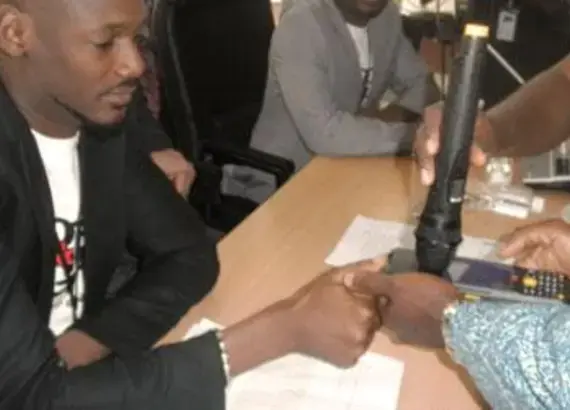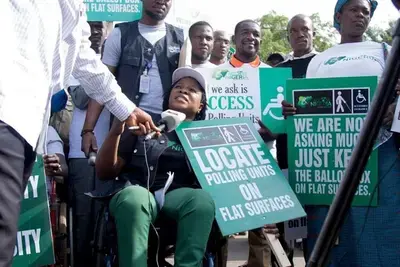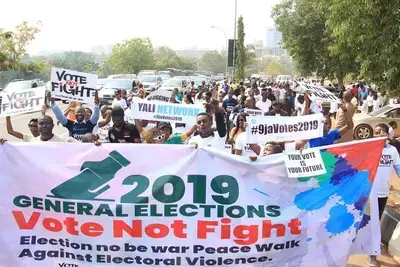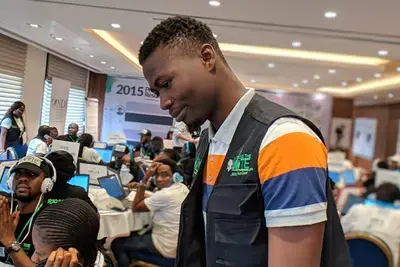
Success Story
Nigerian Electoral Commission Introduces Anti-Voter Fraud Technology
Nigeria’s Independent National Electoral Commission (INEC) has unveiled a new technology to deter electoral fraud: an electronic reader for voter registration cards. It was presented to the public at INEC headquarters on Oct. 31 in the presence of local election monitoring and advocacy groups that will be key to promoting collaboration between civil society and the government, and ensuring that voters are not surprised by the new voting procedures on election day.
NDI partners -- the Transition Monitoring Group (TMG), the Youngstars Development Initiative and the 2face Foundation -- were in attendance as Kyauta Agmadalo Iliya Giwa, a senior member of TMG’s executive committee, demonstrated use of the card reader using her own permanent voter card. After the demonstration, leaders from these civil society organizations met with INEC Chairman Professor Attahiru Jega and INEC directors to ask questions about the new technology.
The reader will be put to its first test next February when Nigerians go to the polls to elect a new president, national and state assemblies, and governors from a number of states. It will read voter cards that contain a photograph, thumbprint and other biometric data that will allow polling officials to verify that a voter is who he or she claims to be and has voted only once. The cards are designed to prevent theft, transfer or illegal card production to reduce the risk of double voting and other forms of fraud.
Nigeria’s iconic music artist and activist 2face Idibia of the 2face Foundation used the opportunity to publicly endorse the card readers and joined with Professor Jega to encourage Nigerian citizens, particularly young people, to participate peacefully in the elections. 2face is spokesman for the national Vote Not Fight: Election No Be War youth get-out-the-vote campaign.
 2face Idibia and INEC Chairman Professor Attahiru Jega promote a non-violent 2015 elections process.
2face Idibia and INEC Chairman Professor Attahiru Jega promote a non-violent 2015 elections process.“We are educating Nigerians, especially young Nigerians, to shun violence,” 2face said at the event. “In other words, not to encourage it and not to be a part of it whether before, during or after the elections.”
Nigeria has a checkered history of electoral fraud, but under the leadership of INEC chair Jega the 2011 elections showed significant improvement over previous elections. Persistent and deep ethnic and religious divisions, drastic regional economic disparities and the fact that the winners of the 2015 elections will control Nigeria’s burgeoning oil revenue-based economy continue to complicate Nigeria’s democratic gains. Faced with a high-stakes and uncertain electoral environment, INEC is seeking to build on the progress made in 2011 with the card readers and other electoral innovations.
“Our youth have become detached from the political process whether they are aloof or whether they are mobilized negatively against the electoral process,” said Jega of the challenges facing Nigeria in 2015. “We have to do everything we can to change this.“
Card readers are new to Nigeria. Education will be key to the success of the technology, ensuring that voters are prepared to properly cast their ballots, and observer groups can monitor the machines’ use and ensure that election day procedures adhere to the electoral code.
Read more:
Published: Nov. 21, 2014



